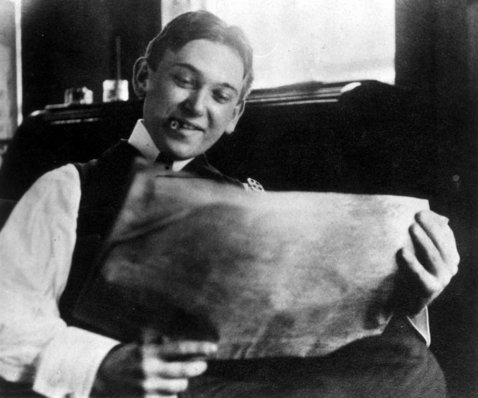January 29 – “Inherit the Wind” is returning to the stage in Albuquerque: “This enthralling drama is a fictionalized account of the 1925 Scopes “Monkey” Trial, which resulted in John T. Scopes’ being convicted for teaching Charles Darwin’s theory of evolution to a high school science class, contrary to a Tennessee law. The character of E.K. Hornbeck was fabricated from H.L. Mencken, the journalist who covered the trial for The Baltimore Sun newspaper.”
January 31 – Investigative journalist, Walter White, wrote for Mencken‘s American Mercury: “’I Investigate Lynchings,’” an essay White wrote for H.L. Mencken’s American Mercury magazine in 1929, provides a hint of his comic style.
“Nothing contributes so much to the continued life of an investigator of lynchings, and his tranquil possession of all his limbs, as the obtuseness of the lynchers themselves,” White wrote. “Like most boastful people who practice direct action when it involves no personal risk, they just can’t help but talk about their deeds to any person who manifests even the slightest interest in them…They gabble on ad infinitum, apparently unable to keep from talking.”
January 31 – who is the Puritan in the Colorado baker’s refusal to decorate cakes for gay weddings?: “H.L. Mencken said, ‘Puritanism is the haunting fear that someone, somewhere, may be happy.’”
February 1 – Libertarians are creating memes with Mencken quotations such as “The urge to save humanity is almost always a false front for the urge to rule.”
February 2 – Rebekah Sager invokes Mencken to argue against Republican policies on public school textbooks: “’First they describe romantically the mating of the calla lilies and the June bugs, then they plunge furiously into their revolting treatises [on] kissing games, necking, and the dance,’ H. L. Mencken wrote in 1925, clearly taking jabs at the textbooks used to teach sex education at the time. ‘There is, on the one hand, the chaste, automatic philandering of the rose and the honeybee, and there is, on the other hand, the appalling pathological fate of sinful Homo sapiens.’”
February 3 – Hugh Selby uses Mencken to offer advice about securing the services of an attorney: “As HL Mencken wrote in 1922 – a century ago – ‘Injustice is relatively easy to bear; what stings is justice.’”
